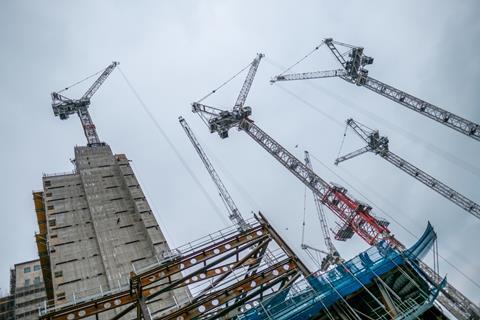S&P Global/CIPS report says companies more confident about upcoming work
Output edged up last month but remained in negative territory for the fifth successive month, a bellwether index has said.
The S&P Global/CIPS UK construction Purchasing ManagersŌĆÖ Index (PMI) said the figure for January was 48.8, up from 46.8 the month before, but below the 50 no change mark.
Both civil engineering and commercial workloads remained close to the 50 mark with scores of 49.8 and 49.1 respectively but housing continued to loiter in the doldrums with a score of 44.1.

Optimism, however, was at its highest level for two years with survey respondents pinning their hopes on a turnaround in client demand due to looser financial conditions and more favourable underlying economic prospects.
S&P economics director Tim Moore said: ŌĆ£UK construction companies seem increasingly optimistic that the worst could be behind them soon as recession risks fade and interest rate cuts appear close on the horizon. The prospect of looser financial conditions and an improving economic backdrop meant that business activity expectations strengthened.ŌĆØ
But Max Jones, director in Lloyds BankŌĆÖs infrastructure and construction team, warned: ŌĆ£Despite a rise in output, many in the industry that are tied into fixed price contracts are seeing their margins eroded as broader issues ŌĆō including materials inflation and guidance around new builds ŌĆō bring unforeseen costs.ŌĆØ
And Brian Smith, head of cost management at Aecom, added: ŌĆ£Construction output has continued to struggle throughout the winter, with five months of contraction. Wet weather can be partially attributed to some of the recent fall in activity, but the greater concern is the high inflation and tight credit conditions that continue to hamper housebuilding and are beginning to be felt in commercial development.ŌĆØ
The survey also said that rates charged by subcontractors increased at the fastest pace since September 2023, despite improvement in their availability.
material costs.ŌĆØ























No comments yet